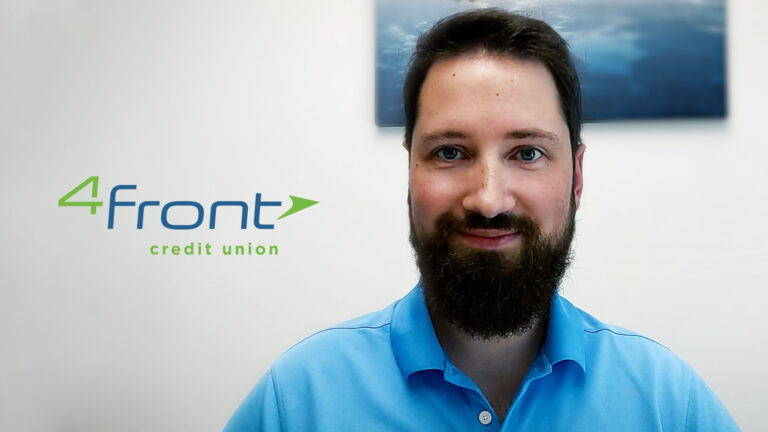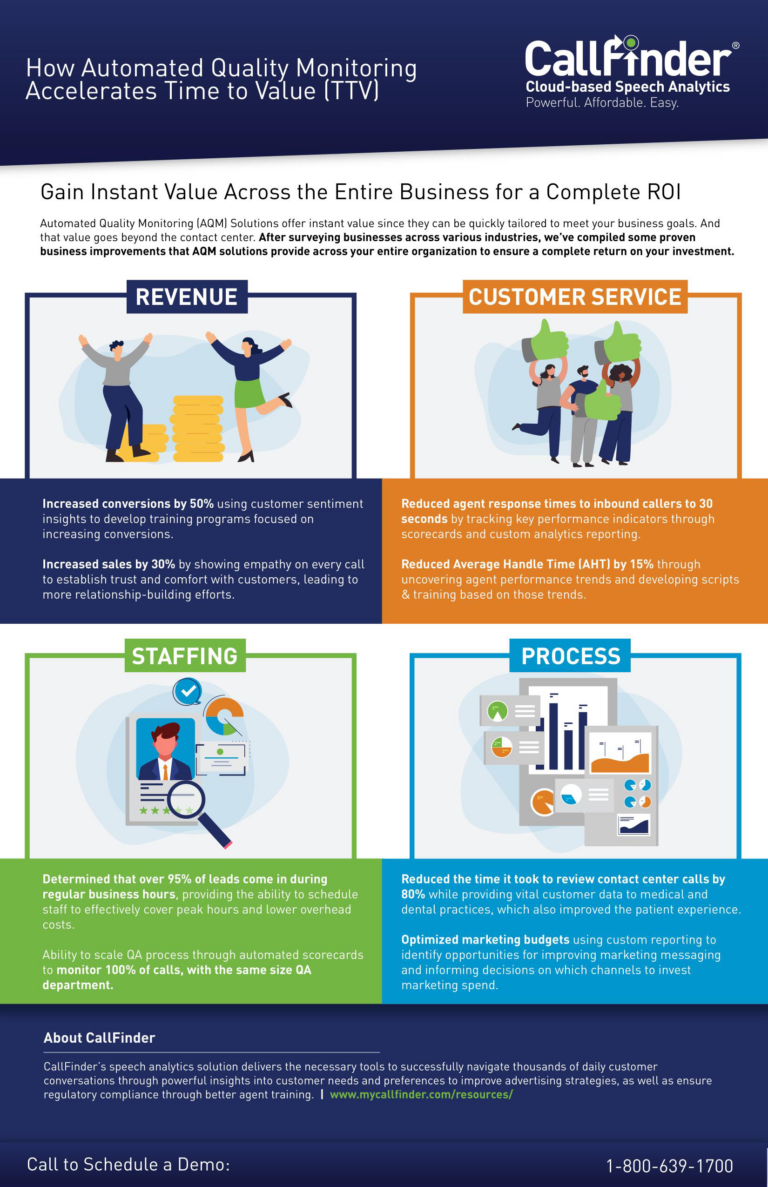Thanks to advancements in data collection and voice of customer technology solutions, specifically speech analytics, call center operators have access to the technology they need to help them monitor agents’ conversations with customers to help determine what type of people succeed in call center environments; the qualities of excellent call center agents. A recent report published by Software Advice, shares several tips on how call centers can identify the personality traits of excellent agents. Here is a snippet of the full report:
Find Common Personality Traits Among Agents That Stay
There are many factors that influence a customer’s experience when they interact with a contact center agent, and most of them fall under the agent’s control. An agent’s attitude, knowledge of the product or service, their conveyed understanding of the customer’s issue, and their ability to respond to and resolve the customers’ inquiries during the first interaction are four significant elements that contribute to the overall customer experience, and are a direct result of the agent’s performance. This is why it is critical to analyze the work process of all agents to identify the traits of your most successful agents.
Maximizing call center retention begins with hiring reliable agents, and workforce scientists are making this easier than ever before. These scientists crunch real data to identify which personality traits would make a candidate psychologically-predisposed to being an ideal employee for your specific work environment.
“Analytics allows business operators to continuously challenge assumptions about how to expand and manage their workforces profitably,” says Dr. David Ostberg, vice president of Workforce Science at Evolv, a San Francisco-based data analysis and workforce probability firm.
Evolv’s researchers have discovered that many traits commonly screened for in the hiring process don’t accurately predict job performance. For example, their experts analyzed data from 21,115 call center agents and found that “previous employment duration is a very weak predictor of how long a new hire will stay on a job.” Instead, the data shows that a person’s creativity, curiosity and ability to multitask correlate more strongly with how long they might stay on the job. While call centers each have unique requirements, most traits identified as predictors of retention are relevant to all of them.
In order to assess whether candidates possess these predictive traits, companies must employ a more psychologically-based approach to hiring. In 2012, Transcom, a global call center operator with over 30,000 customer service specialists, hired Evolv, a company that uses predictive analytics to reduce attrition. Evolv devised a new screening process geared toward finding candidates that possess traits strongly correlated to longer call center retention.
This involved giving candidates a realistic preview of the demanding nature of the position, then assessing their competency using actual job simulations. Additionally, they asked candidates “forced choice questions” that require more self-reflection. For example, the answer to this forced question would tell recruiters whether the applicant is curious by nature:
Choose the statement that best describes you:
- I am curious about new things.
- I stay focused on the task at hand.
This kind of question will yield more honest answers than simply asking, “Are you curious?” and having a candidate choose yes or no. In this case, the candidate would likely guess that the desired answer is yes and thus be more apt to misrepresent themselves.
After using these tactics to mine for candidates with the most successful personality traits, Transcom was able to hire fewer people — 800 as opposed to 1,000. Of the 800, 500 remained on the job three months later. According to Neil Rae, Transcom’s executive vice president, the cost to hire and train a new agent is around $1,500, which means being able to hire fewer of them yields enormous savings. As a result, the company is currently rolling out their new hiring process to its other call center operations. This should result “in cost savings and better customer service with less worker churn” says Rae in a recent New York Times article.
Implementing an improved hiring process like the one Transcom did can offer significant benefits for other companies as well. “Using this screening and assessment process, the majority of call centers can see a double digit increase in retention,” says Dr. Ostberg.
Motivate Employees by Fostering Purpose
Effective training is vital for customer service representatives, and any employee in a company who handles incoming client communications. Not only will proper training and coaching for success empower agents with the knowledge they need to do their jobs, it will motivate them to continue on their successful path and feel like a valued employee.
Ever since Elton Mayo’s 1920s research studies concluded that work performance is closely tied to how much an employee feels they contribute to their work environment, businesses have sought ways to create employee-centered work cultures. This requires deeper motivation — one based in making agents feel like they have a purpose.
“High performance is that unseen intrinsic drive, the drive to do things because they matter,” says Daniel Pink, best-selling business author of newly released To Sell is Human, a book about the changing world of work. “I believe that includes three elements: autonomy, mastery and purpose.”
Pink suggests creating a “genius hour” as one method to make employees feel their work has greater purpose. Agents are asked to leave the phones for one hour every week to come up with improvements in processes, new ways to handle workflow or other ideas.
In an article on his blog, Pink points to Jen Shefner, assistant vice president at Columbia Credit Union, who implemented a genius hour in her company’s call center. During that time, agents have come up with many new ideas, including training tools for other branches. Agents thrive on the autonomy and purpose the genius hour provides, and Shefner ensures their best ideas are implemented.
Another strategy for generating purpose is to raise agents’ awareness of their impact on end customers.
Dr. Adam Grant, a management professor at Wharton and author of Give and Take: A Revolutionary Approach to Success, a book about forces that shape success, conducted a series of call center experiments to uncover truths about motivation and work performance.
In one experiment at a university fundraising call center, a group of agents was introduced to a scholarship recipient. The recipient spent five minutes explaining the positive impact their work had made on his life. One month later, agents who had met the recipient increased their weekly phone time by an average of 142 percent and their funds raised increased by 171 percent. Agents who did not meet the recipient showed no change in performance.
In a second experiment, a group of agents was introduced to a scholarship recipient and then instructed to focus efforts on contacting alumni who donated frequently to the university. On average, agents in this group doubled the number of calls made per hour and increased weekly revenue by more than 400 percent. Dr. Grant’s conclusion? Contact with beneficiaries “appears to be a promising catalyst in the art of motivation maintenance.”
He suggests connecting agents directly with end customers — or “outsourcing inspiration,” as he calls it — to generate motivation. If that’s not possible, showcasing customer photos, sharing their stories and having agents describe their own positive experiences with customers can inspire productivity. Contact with end customers delivers a dose of motivation to agents to achieve higher performance than they would without contact, which Dr. Grant says often happens without them even realizing it.
The Bottom Line
Technology like speech analytics can help companies identify and hire the right people, train, coach, and engage them in ways to ensure that they develop into successful agents and employees, thus reducing turnover and improving the call center’s profitability. To learn more about speech analytics, contact us.
*The original version of this report appeared on the Customer Service Investigator: The Secret to Call Center Retention and Productivity: Data Analysis and Psychology.






